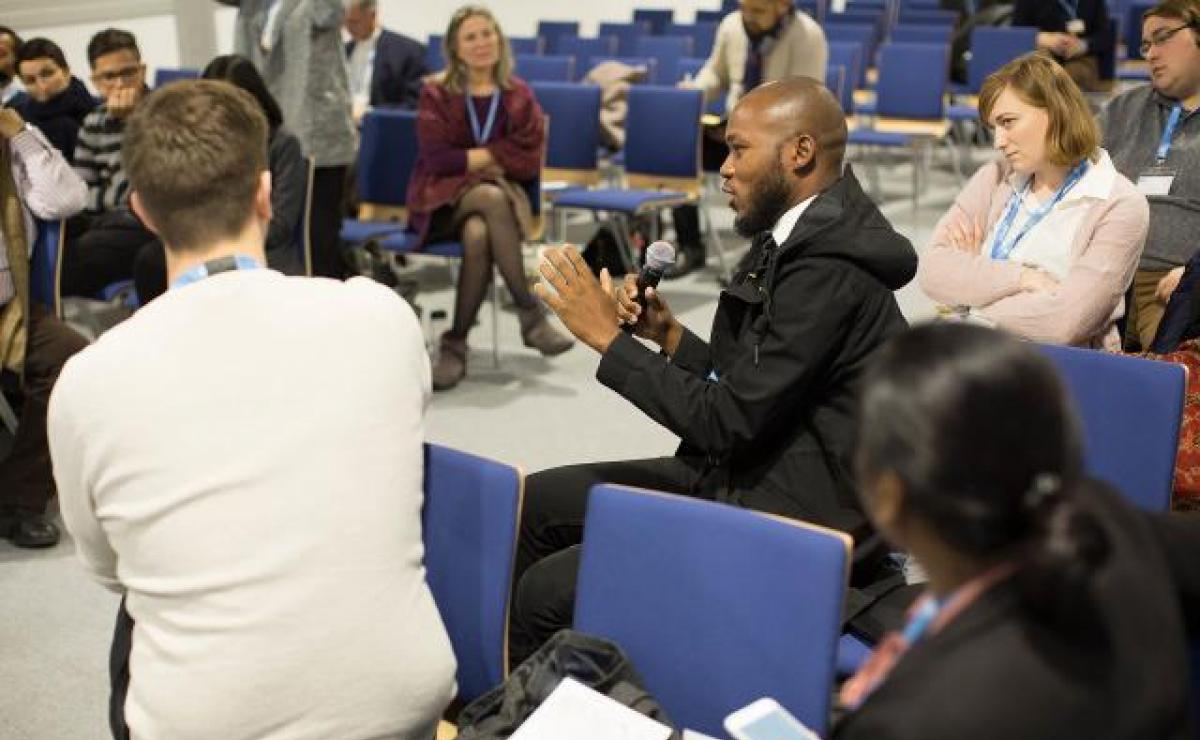Are we constructing or destructing the future?

We, as faith communities, and as the Lutheran World Federation (LWF), are still very much hopeful of a better future, a future that’s safe and secure for all creation. We are currently in the context where, on a daily basis, we ask ourselves if we still have a future, if we’re constructing or destroying it, and that question grows out of our uncertainty about the possibility of solutions to save our planet. I wish to frame our perspectives on creation as a construction that we should help to build up, rather than trying to tear down.
Creation as construction
Our Christian faith, through biblical descriptions of how God created the world, teaches us that God constructed this wonderful planet as our ultimate home. Proverbs 8:22–31 talks about creation and ‘the wisdom of a craftsman or architect’ at God’s side being involved in the creation and construction of the world. “I was appointed from eternity, from the beginning, before the world began” (verse 23). This statement refers to a poetic text from Genesis, the beginning of God’s creative work (Genesis 1). “Then I was the craftsman at his side. I was filled with delight day after day, rejoicing always in his presence” (verse 30). And this line is like an expression of joy in the earth’s construction process, which involves God and the craftsman or woman at God’s side, both of them seeing creation as good, very good.
Creation is indeed a great construction, and just as every constructed work needs a maintenance plan, so surely creation needs a sustainability plan. This is exactly what care for creation actually means in relation to sustainability, but if we do the opposite, we’re not constructing but rather destructing this wonderful work.
There are various efforts to maintain our beautifully constructed planet, including the Paris Agreement, which has goals such as keeping the global temperature increase to below 2 degrees Celsius, and preferably within 1 degree Celsius. There is much uncertainty over the possibility of achieving these goals, even though the Intergovernmental Panel on Climate Change (IPCC) special report on 1.5C stipulates that we need to commit ourselves and work towards them. Though the IPCC report may or may not be welcomed, we still have a good opportunity to positively participate in constructing the future. Let us stand up for what we stand on: our planet Earth.
Biographical info
Mr Khulekani S. Magwaza, a member of the Evangelical Lutheran Church in Southern Africa, serves on the LWF Council. He is one the seven young people who made up the LWF delegation to the 2018 climate conference in Katowice, Poland.
COP24
A delegation of young people from the member churches has been representing the LWF at the annual conference of the United Nations Framework Convention on Climate Change since COP 17 in Durban, South Africa. At COP 24, the seven delegates from each of the seven LWF regions, come with different experiences and expertise in climate action, climate advocacy and theology of creation.
